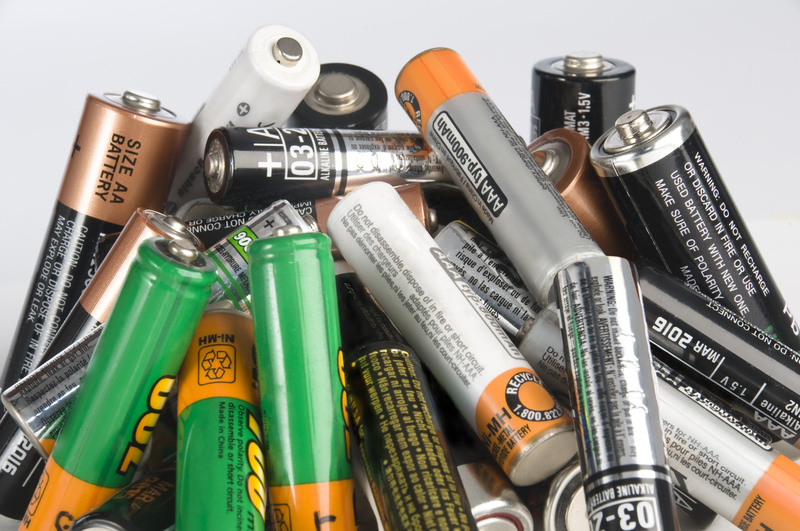Tips for Recycling Pots and Pans Without Hassle
Are you staring at a growing pile of old cookware and wondering how to dispose of them responsibly? Recycling pots and pans can seem daunting, but with the right approach it can be simple, sustainable, and even rewarding. In this comprehensive guide, we'll share practical, eco-friendly tips for recycling pots and pans without hassle, so you can reduce waste and feel good about your efforts!
Why You Should Recycle Old Pots and Pans
For many households, worn-out or damaged cookware often ends up abandoned in the back of a cupboard or worse--tossed straight into the garbage. This contributes to growing landfill problems and environmental pollution. Recycling cookware not only helps recover valuable materials but also reduces the carbon footprint of manufacturing new products. Here are some reasons to prioritize responsible disposal:
- Metal recovery: Most pots and pans are made of metals like aluminum, steel, or copper, all of which can be effectively recycled.
- Eco-conscious living: Supporting recycling minimizes the need for mining raw materials, conserving natural resources and energy.
- Decluttering your home: Clearing out unused cookware gives you more space and a tidier kitchen.

Understanding What Pots and Pans Are Made Of
Before you start, it helps to know what materials you're dealing with. Pots and pans are commonly manufactured from the following:
- Stainless steel
- Aluminum
- Copper
- Cast iron
- Non-stick coated cookware
Stainless steel, aluminum, copper, and cast iron are highly recyclable metals. Non-stick pans are a bit trickier, as the coating (often Teflon or ceramic) can complicate recycling. Nonetheless, there are still options available for all types!
How to Recycle Pots and Pans: Step-by-Step Guide
1. Assess the Condition of Your Cookware
First, determine if your old pots and pans are truly unusable. If they have minor scratches or stains, consider cleaning or donating them. Cookware with severe warping, cracks, flaking non-stick surfaces, or rust are ideal candidates for recycling.
2. Remove Non-Metal Components
Most recycling centers prefer bare metals. Remove any plastic, silicone, glass, or wooden handles and lids. If the handle is riveted on and can't be removed, don't worry--just do your best, as many centers use shredders that can separate small non-metal parts later.
3. Separate by Material Type
If you have several pieces, sort them by their primary material (e.g., group all aluminum together, copper together, etc.). This makes the process more efficient and increases the likelihood your items will be properly recycled.
4. Check Local Recycling Guidelines
Not all curbside recycling programs accept cookware. Many facilities only handle household metal cans or specific plastics. Contact your local recycling or waste management service and ask:
- Do they accept pots, pans, and cookware?
- If yes, should you drop them off somewhere specific?
- Are both non-stick and uncoated metals accepted?
- What about broken glass lids or handles?
If your local program refuses cookware, don't despair! Other options are available.
5. Use a Scrap Metal Recycling Facility
Virtually all scrap metal yards accept pots and pans, and some may even pay you for them (especially if they're copper or pure aluminum). Many scrap yards have dedicated bins or attendants who can tell you exactly where to put your items.
- Find a local metal recycler: Use online resources like Earth911.com, RecycleNation.com, or simply search "scrap metal recycling near me."
- Transport safely: Stack your old cookware in sturdy boxes or bags to avoid spills or injury.
Pro Tip: Remove as much of the plastic, rubber, or glass from your cookware before visiting the facility, as mixed materials can sometimes reduce the value of your recycled metals.
6. Donate Usable Cookware
Recycling isn't your only option! If your pots and pans are gently used but no longer needed, consider donating them:
- Charity thrift stores (e.g., Goodwill, Salvation Army)
- Local shelters or food banks
- Community centers or churches
- Online "free" groups (such as Freecycle, Facebook Marketplace, or Craigslist Free)
Donation extends the life cycle of your cookware and helps those in need.
7. Repurpose for Creative Uses
If recycling isn't readily accessible, explore DIY upcycling ideas for old pots and pans:
- Transform into planters or hanging flower pots
- Use as pet food/water dishes (after thorough cleaning)
- Upcycle as storage containers for small items, craft supplies, or tools
- Repurpose as art projects, bird feeders, or garden decorations
With a bit of imagination, your discarded cookware can find new life far from the landfill!
What About Non-Stick Cookware?
Non-stick or Teflon pans require special consideration. The coating is not always accepted by standard recycling centers, as it can contaminate the metal recycling stream. If your pan is worn out but intact, consider these options:
- Check with the manufacturer - Some companies (e.g., Calphalon, GreenPan) offer recycling take-back programs.
- Consult your local hazardous waste program for guidance - Some cities classify Teflon as household hazardous waste.
- Search for specialized recyclers in your area using online databases.
Remember: Never put non-stick cookware in your curbside bin unless specifically instructed by your municipality!
Frequently Asked Questions About Pots and Pans Recycling
Can I recycle glass or ceramic lids?
Glass lids are generally not accepted in curbside glass recycling due to heat resistance additives. However, some scrap yards or hazardous waste facilities may accept them. Ceramic lids are often considered trash unless a ceramics-specific recycling program is available.
How do I clean pots and pans for recycling?
It's best to rinse off heavy grease, but complete cleanliness isn't usually required. Basic removal of food residue will suffice for most recyclers.
Are rusted or broken pans recyclable?
Absolutely! Rust doesn't affect metal recycling, and broken pots can still be recycled as scrap metal.
Benefits of Recycling Cookware Responsibly
- Reduces landfill waste by keeping bulky metal items out of waste streams
- Conserves raw materials, especially valuable and energy-intensive metals
- Decreases greenhouse gas emissions from mining and production
- Supports the circular economy by putting old materials back into use
Common Mistakes to Avoid When Recycling Pots and Pans
- Don't mix different materials - Keep aluminum, steel, and copper separate when possible.
- Don't toss non-stick pans in regular recycling - Follow your city or manufacturer's instructions.
- Don't forget to remove plastic or rubber parts - These can contaminate the recycling feed.
- Don't assume all facilities accept cookware - Always check facility guidelines before dropping off items.

Environmentally Friendly Alternatives to Throwing Away Old Cookware
Aside from recycling, donating, or upcycling, consider trading your cookware through:
- Community swap events
- Online bartering websites
- Neighbor-to-neighbor giveaways
Such exchanges promote reuse over disposal, stretching the lifespan of durable goods.
Summary: Making Pots and Pans Recycling Easy and Hassle-Free
Recycling kitchen cookware doesn't have to feel overwhelming! Whether you have aluminum, steel, copper, cast iron or non-stick, there is almost always a responsible way to dispose of your cookware. Remember to check local guidelines, clean and sort your items, and use scrap metal recyclers when in doubt.
With these tips for recycling pots and pans without hassle:
- Assess usability before tossing--if it still works, donate or gift it!
- Remove non-metal parts to keep materials clean
- Contact your waste management provider for up-to-date guidance
- Use scrap yards or specialized recyclers for metals
- Get creative--repurpose or upcycle where possible
- Engage in community swaps or online exchanges
By following these simple steps, you'll help protect the planet, declutter your home, and maybe even inspire your community to recycle more. If you've found these tips for pot and pan recycling helpful, be sure to share them with friends and family. Together, we can make waste-free living our new kitchen tradition!